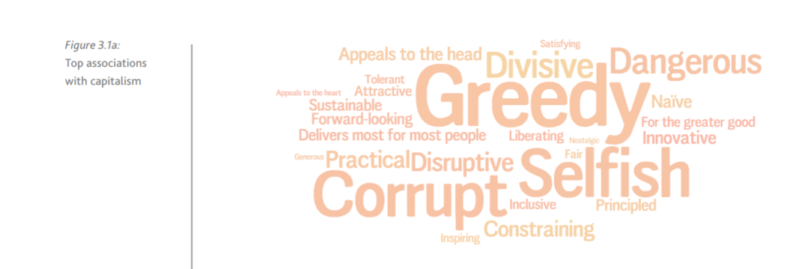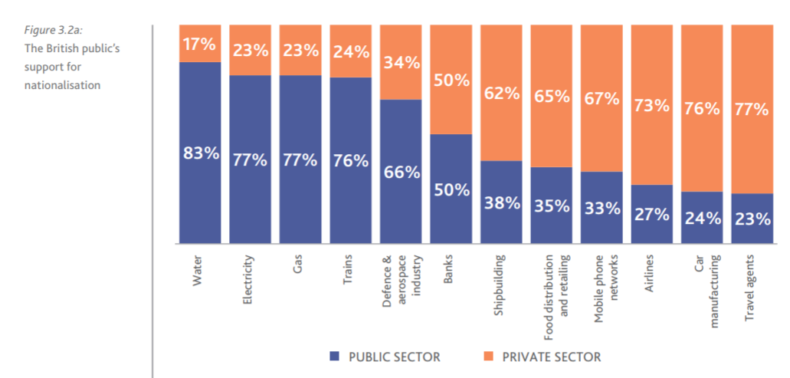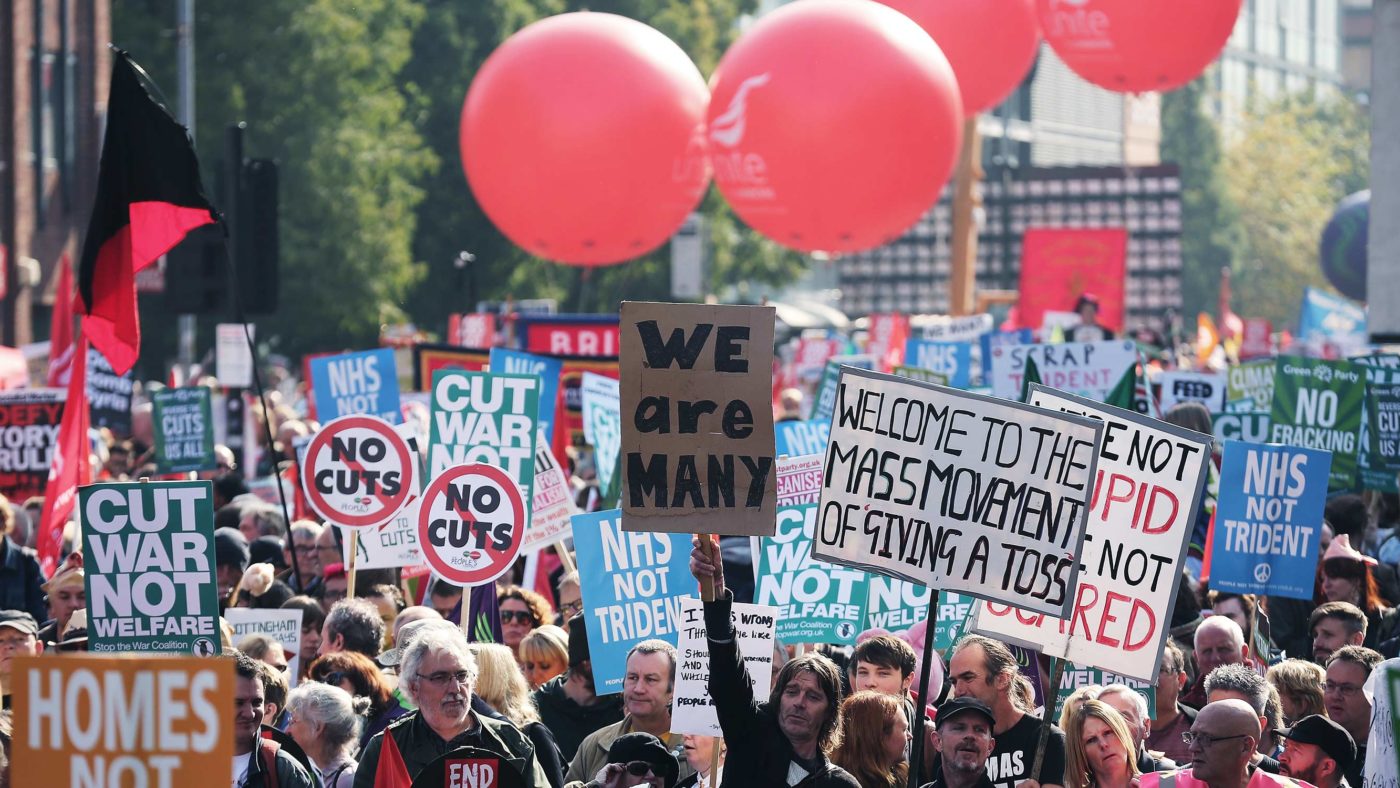However bad you think it is for the Conservatives, it’s actually worse.
That’s the message this week not from Labour Party conference, where John McDonnell and Jeremy Corbyn occasionally interrupted the delirious chants of their supporters to announce a nationalisation here and a spending commitment there. Nor from any of the latest intrigues around the Cabinet table. Or the tepid reaction of some in Europe to Theresa May’s offer on a Brexit transition period.
It comes from new research by Matthew Elliott and James Kanagasooriam, of the Legatum Institute and Populus respectively, on public attitudes to capitalism and free markets. It finds that on economic matters, the public are far, far closer to Labour – even Corbyn-style Labour – than the Tories.

The voters dislike profits. They are sceptical about private ownership, especially of the utilities (but also of the banks, and even of travel agents). They associate the word “capitalism” with phrases like “greedy”, “corrupt”, “selfish” and “dangerous”. In short, they are magnificently unconvinced by pretty much all the economic ideas that free-marketeers hold sacred. Oh, and these beliefs aren’t just held by the young, or even by Labour voters – they stretch right across society. For example, a solid majority of Tory voters in 2017 would happily nationalise the railways.
So what’s to be done about it? The good news is that there are still a few areas where the Tory message chimes with the public: the voters still want to restrict welfare to those in genuine need, and many still see the need for continued austerity. But as confirmed by other polling, such as the British Social Attitudes Survey, they are unpersuaded by the philosophical case for the small state, or low taxation.

There is a case that the Tories should simply bow to the populist mood. But this would not only be unconvincing, but actively damaging. It would it lend legitimacy to Jeremy Corbyn’s own critiques of capitalism. And it would mean abandoning many of the policies and principles that have been proven to deliver prosperity. Turning Britain further against business might win votes in the short term, but it would blight lives in the long.
When I interviewed the report’s authors for the CapX podcast, which will return shortly from its summer break, Kanagasooriam (whose team have done much of the data work for Ruth Davidson in Scotland) suggested that the most likely way that the boil will be lanced is via the actual experience of a Corbyn government, just as the Winter of Discontent turned so many people into lifelong Conservatives.
For Elliott (better known as the former CEO of Vote Leave), this was the counsel of despair. The Prime Minister speech this week in defence of the free market, he argued, was a sign that the Conservatives are waking up to the gravity of the situation.
Yet it will take more than just a speech to make Britons love the market, or even a dozen speeches. The Tories do not only need to make a renewed case for the principles that animated the Thatcher revolution, and Britain’s subsequent economic revitalisation. They need to show the voters – in concrete, practical terms – how those principles can make their lives better.
Earlier this week on CapX, the head of the Joseph Rowntree Foundation wrote about its own research on lower-income voters, and what they wanted from the Tories. One of the more intriguing statistics was that voters who thought their financial situation had improved over the past year went for the Tories by 52 per cent to 29 per cent for Labour. The problem, of course, was that this segment accounted for only 13 per cent of the electorate.
In other words, the best way to reconcile the voters to capitalism – and to the Tory party – may be the simplest of all: by showing them, in their everyday life, that it delivers.
This article is taken from Robert Colvile’s Weekly Briefing email for CapX. Sign up here.


